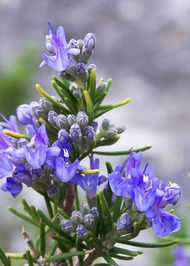01/4What makes raisins different from sultanas?

There are many things we relish everyday without knowing much about them! In fact, we often realise this when we go through some recipe and look for those ingredients, and wonder what makes them so different from the other variants. Interesting, one such common thing we often use in our salads, cakes, cookies or shakes without pondering over the difference are raisins and sultanas. Here’s all you need to know about these little, sweet, dried fruits that are used in so many delicacies.
02/4Why does the colours and texture vary?


Interestingly, both sultanas and raisins are used as dried fruits. Raisins are dried grapes, in most cases the grapes are green in colour and as they dry the colour becomes dark and the concentration of nutrients turn dense. As the grapes dry there are small seed-like particles that develop and give the raisins a unique taste.
Sultanas are also known as golden raisins as their colour turns golden as they dry. This is simply because sultanas are made with golden white fleshed grapes, which have absolutely no seeds or particles. Moreover, as they dry the concentration of nutrients becomes dense, but the colour remains pale yellow whereas raisins turn dark and sometimes brown in colour.
03/4Process of drying


Both raisins and sultanas are sweet, little dried fruits and there’s not much difference in terms of taste and texture, but what actually differentiates these two dried grape variants is the process of drying and the health quotient also depends a lot on the process of drying.
Raisins are made using green seedless grapes and they are mostly sundried without any additives and preservatives. This retains the concentration of nutrients and makes it a much healthier alternative to sultanas.
On the other hand sultanas are processed and dried by dipping the golden grapes into vegetable oil and acidic formulation and then they are dried. This process makes the sultanas fit for commercial purposes but at the same the concentration of nutrients may be comparatively less as compared to raisins.
04/4Side effects


Raisins are dried naturally and don't have any specific side effects. In fact, the nutritional composition is more or less the same in both the variants and are packed with vitamins, minerals, antioxidants and fibers. However, sultanas are often dipped in a sulfur based solution, which may have side effects like stomach cramps, food poisoning etc. The presence of sulfur helps in retaining the golden colour of the grapes.


































































closecomments
SIGN IN WITH
GoogleEmail